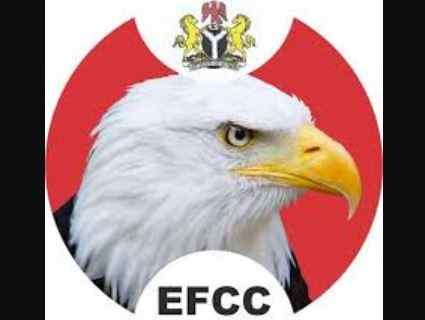The establishment of the Economic and Financial Crimes Commission (EFCC) was set up in Nigeria to promote transparency, accountability, and economic stability.
In this guide, you’ll learn about the history of EFCC, which Includes when It was created, Its founder, and its part in fighting financial crimes In Nigeria.
READ ALSO: List Of All Departments In EFCC In Nigeria
When Was The EFCC Established In Nigeria?
The Economic and Financial Crimes Commission (EFCC) was established on April 13, 2003.
This Nigerian agency was created to fight economic and financial crimes, such as fraud and money laundering.
However, the formation of the EFCC was partly in response to international pressure, particularly from the Financial Action Task Force, which named Nigeria as one of 23 countries non-cooperative in the international community’s efforts to fight money laundering.
The EFCC operates under the authority of the Nigerian government and has its headquarters in Abuja.
Who Founded The Economic And Financial Crimes Commission (EFCC)?
The Economic and Financial Crimes Commission (EFCC) was established by the Nigerian government through an Act of the National Assembly on December 12, 2002.
It was created during the administration of President Olusegun Obasanjo to address economic and financial crimes. However, the EFCC began its operational activities on April 13, 2003, under the leadership of its first Executive Chairman, Mallam Nuhu Ribadu.
READ ALSO: What Is The Full Meaning Of NAFDAC And Their Functions?
History Of The Economic And Financial Crimes Commission (EFCC)
The Economic and Financial Crimes Commission (EFCC) is a Nigerian law enforcement agency dedicated to fighting financial crimes such as money laundering and advance fee fraud.
Its history mirrors Nigeria’s ongoing battle with corruption and the push from the international community to improve financial integrity.
However, the EFCC was officially set up in 2003 under the Economic and Financial Crimes Commission (Establishment) Act of 2002, which was passed by the Nigerian government.
The creation of the EFCC was a reaction to the Financial Action Task Force (FATF), which had listed Nigeria as one of 23 countries not doing enough to combat money laundering.
And, the EFCC’s goal was to boost Nigeria’s financial reputation and tackle the widespread corruption that plagued the country. The first chairman of the EFCC, Mallam Nuhu Ribadu, played a major part in the agency.
Under his leadership, the EFCC gained a reputation for its tough stance on corruption, having conducted lots of high-profile investigations and successfully prosecuted several influential figures, including former governors and bank executives.
By 2005, the EFCC had made headlines for arresting Diepreye Alamieyeseigha, the former governor of Bayelsa State, who faced charges of money laundering.
In September 2006, the EFCC was probing 31 of Nigeria’s 36 state governors for corruption. However, In December 2007, after extensive investigations, the Nigerian Federal Government cleared the Vaswani brothers of any wrongdoing.
This decision led to their return to Nigeria amidst intense media scrutiny. In April 2008, the EFCC started investigating Senator Iyabo Obasanjo-Bello, daughter of former President Olusegun Obasanjo.
She was accused of receiving stolen funds from the Ministry of Health. The EFCC saw a major leadership change on June 6, 2008, when Chief Farida Mzamber Waziri was appointed as the new chairperson.
This change came after Ribadu was demoted from his position as Assistant Inspector General of Police. Under Waziri, the EFCC continued its fight against corruption but faced different challenges.
A notable incident during her tenure was the assassination of Abdullahi Muazu, the head of the EFCC’s Forensic Unit, on September 14, 2010.
This tragic event raised concerns about the safety of those working in the anti-corruption sector. On November 23, 2011, President Goodluck Jonathan dismissed Waziri, and Ibrahim Lamorde was appointed as acting chairman.
Lamorde’s appointment was confirmed by the Nigerian Senate on February 15, 2012. However, his time in office was marked by ongoing investigations into corrupt practices, and also faced allegations of misconduct.
The EFCC experienced another leadership change when President Muhammadu Buhari removed Lamorde from office on November 9, 2015. Ibrahim Magu was appointed as his replacement.
Magu was known for his aggressive approach towards corruption, but his tenure was spoilt by controversies. He faced two failed Senate confirmations due to negative security reports against him.
On July 6, 2020, Magu was arrested on allegations of corruption and was soon suspended from his position. After Magu’s suspension, Mohammed Umar Abba served as the acting chairman until February 16, 2021, when Abdulrasheed Bawa was nominated as the new chairman.
Bawa’s appointment was a new phase for the EFCC, with hopes for revitalized operations in the ongoing battle against financial crimes.
Still, he faced criticism for not achieving substantial progress in reducing corruption. Most recently, on October 12, 2023, President Bola Tinubu appointed Ola Olukoyede as the new chairman of the EFCC.

